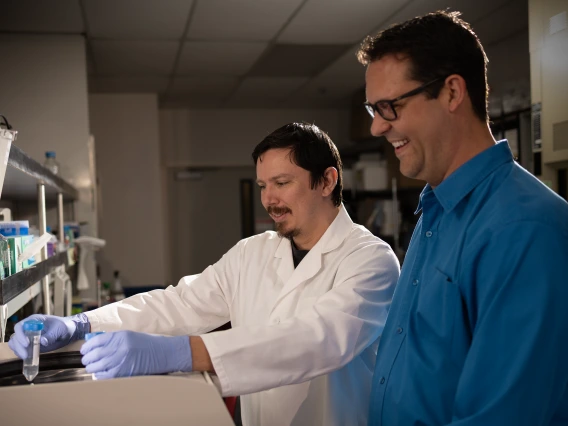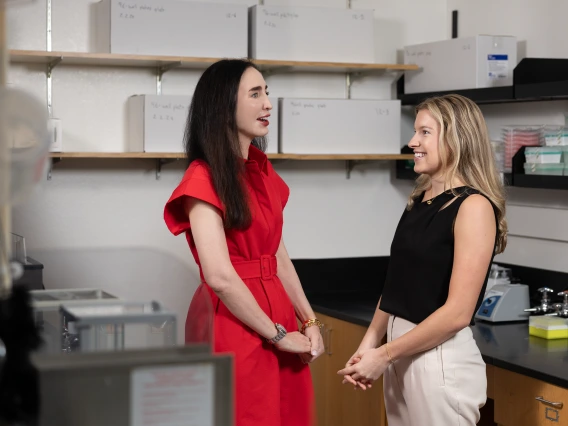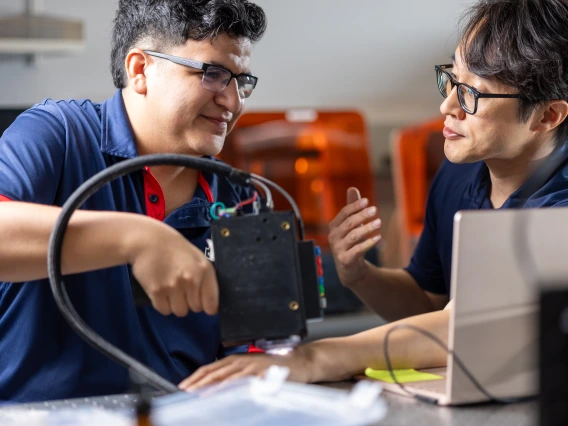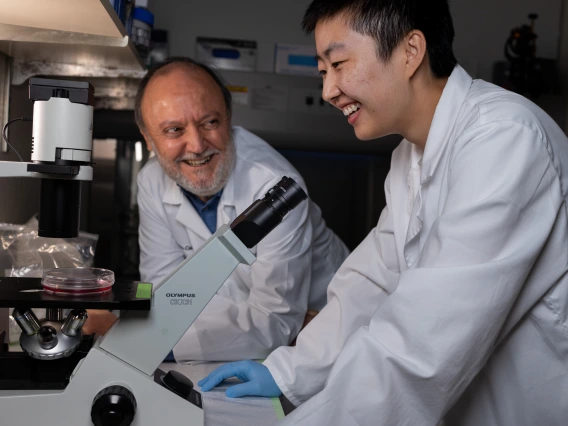NCI Integrative Cancer Scholars Program
Advancing the field of cancer research through mentorship
For 46 years, the U of A Cancer Center has offered doctoral students the Integrative Cancer Scholars program funded through an NIH National Cancer Institute T32 National Research Service Award. Integrative Cancer Scholars program is an innovative predoctoral fellows training program aimed at maximizing the impact and significance of cancer research.
The program is designed to expose each trainee to the range of current thought in the cancer field, to teach state-of-the-art laboratory techniques, to emphasize critical thinking skills, to introduce real-world aspects of clinical work, and to refine their career-development skills, particularly in networking, communication and grant/manuscript preparation.
T32 scholars
The current scholars are Jesse Altemus, Madison Gamble, Rafael Romero and Manline Shao. Learn more about them below.
About the T32 Integrative Cancer Scholars Program
Scholars care mentored by faculty with well-funded collaborative research programs in a broad range of cancer research specialties:
T32 leadership
Koenraad M Van Doorslaer, PhD
Clara N Curiel-Lewandrowski, MD
Jennifer Kehlet Barton, PhD







